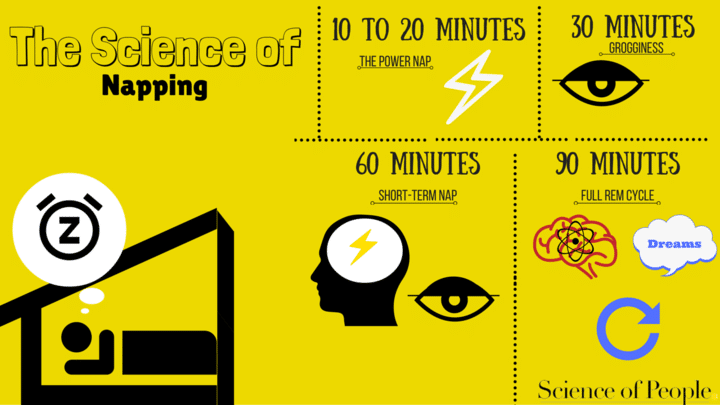

Ideally, you need four to six cycles of sleep every 24 hours to feel fresh and rested.

Try to schedule your dedicated nap time during those hours. when your energy level dips due to a rise in the hormone melatonin. Resting can help improve cognitive performance, allowing us to be more productive and efficient throughout the day.Ī study published in the Journal of Sleep Research found that a 30-minute nap improved alertness and cognitive performance in participants.Īt the 2018 Consumer Electronics Show, attendees had a unique opportunity to recharge with short naps in special "refresh rooms". An average sleep cycle lasts about 90 minutes. Choose the Best Time for a Nap: Assuming that you follow a fairly normal nighttime sleep schedule, prime time for power naps is typically in the middle of the day from about 1:00 p.m. When you are tired, it's difficult to concentrate and stay focused. Knowing the facts about napping can help determine whether to take naps, and tips for better naps can enable healthier napping.

Nap needs and the benefits of napping can vary among individuals. For many adults, naps can help to maintain alertness or overcome daytime fatigue. One of the most significant benefits of napping is that it increases alertness and productivity. Another study reported significant improvement in the mean stride of the 5-jump test after naps of different durations, revealing longer nap durations to have more slow-wave sleep. A nap is a short period of sleep that usually occurs during the day. Here are some of the benefits of taking a siesta: So if you want to enjoy better productivity and an elevate your mood – it's time for a nap! A 2015 study published in the Journal of Sleep Research unveiled a secret to success: taking midday naps! Employees who took regular snoozes reported experiencing significantly less fatigue, improved performance at work and boosted job satisfaction overall. Learn more about how long naps should be in this article. It's been scientifically proven that taking naps while on the job can have a positive impact. Objective: This study investigated the relationship of daytime maternal napping, exercise, caffeine, and alcohol intake to objective and subjective sleep indices.Participants: Sixty healthy, nondepressed, first-time mothers between 3 and 6 months postpartum. The best nap duration varies from person to person, but experts tend to agree that 20 minutes is ideal. Napping has been shown to provide numerous benefits for our health and well-being.


 0 kommentar(er)
0 kommentar(er)
